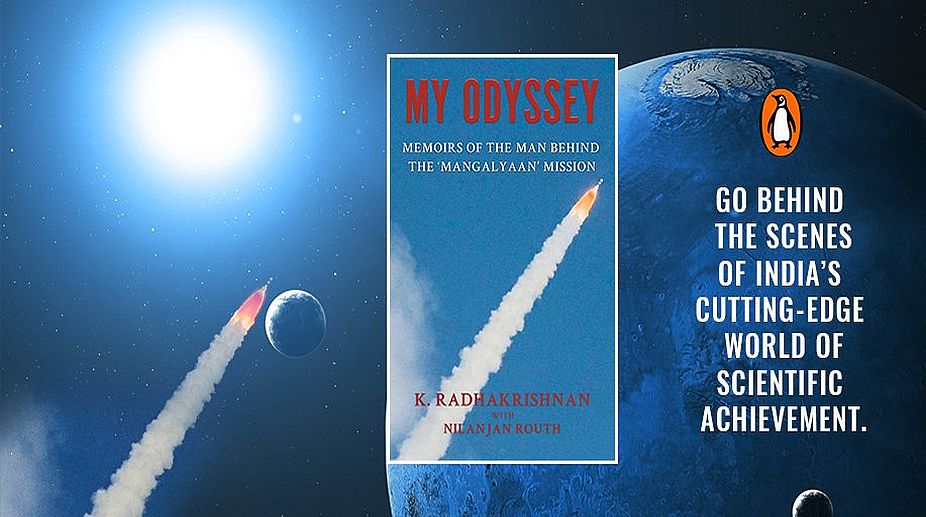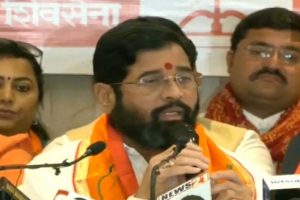In the opening chapter of his memoirs, K Radhakrishnan, former chairman of the Indian Space Research Organisation, says, “I am leaving ISRO in great shape for my successor. I hope that posterity judges it that way.” What he hides in the book is leaving the organisation with a fine of $ 1 billion payable as compensation to the Bangalore-based multimedia Devas Corporation for breach of contract. The amount is almost equivalent to the annual budget of ISRO. A Permanent Court of Arbitration tribunal in The Hague has ruled in September 2015 that ISRO acted “unfairly and inequitably” in cancelling the contract between Antrix Corporation, commercial arm of ISRO, and Devas, primarily because of its inability to launch GSAT-6 and GSAT-6A satellites in time and lease transponders to Devas, among other things, within two months of his departure. He dismisses the entire episode as “unnecessary turmoil,” but he “held his ground,” whatever it may mean.
Vikram Sarabhai was the father of India’s space programme. His inspiring words had been the guiding principle of successive chairmen of ISRO. “There are some who question the relevance of space activity in a developing nation. To us there is no ambiguity of purpose. We do not have the fantasy of competing with economically advanced nations in the exploration of the moon and the planets or manned space flights. But we are convinced that if we are to play a meaningful role nationally, and in the comity of nations, we must be second to none in the application of advanced technologies to the real problems of man and society which we find in our country,” he wrote in the nascent stages of our space odyssey.

Radhakrishnan’s memoirs, as the title indicates, is the story of his climbing the ISRO ladder with a single-minded devotion to seeking personal glory. His crowning achievement is the Mangalyaan mission by using a Polar Satellite Launch Vehicle perfected by his predecessors. Had Sarabhai been alive, he would have disapproved of the mission and directed him to devote his energies to perfecting the Geo Synchronous Launch Vehicle, which was on the verge of completion when Radhakrishnan took over as the ISRO chief. By not developing the GSLV to perfection, ISRO has to continue its dependence on international launchers to orbit heavier satellites. That task gained momentum only after AS Kiran Kumar took over as chairman and ISRO is now geared up to launch GSLV Mark III capable of launching satellites weighing up to 4,000 kg.
If ISRO wants to undertake a genuine Mars mission, it is worth remembering that most of the technologically advanced countries could not do it alone. The best approach would be to partner with nations that already have the capacity and focus on the expertise that is particular to India. Mars exploration is going to be an international effort and India has much to contribute. The Mangalyaan mission did not add an iota of fresh information about the red planet, but it brought kudos to Radhakrishnan and got him listed as one of the top 10 space scientists of the world while his real forte is management, music and public relations in which he excelled.
Describing his taking over as chairman of ISRO, Rashakrishnan writes with disarming modesty, “The tradition of seamless transition at the helm of ISRO continued this time as well. I had been in the Space Commission for a prenatal period of one year. My predecessor continued with us as a Vikram Sarabhai distinguished professor, operating from a room opposite mine at Antariksh Bhavan. As a symbol of respect, I offered him the chairman’s car and I opted for a smaller one for myself.” Within weeks of this drama, his distinguished predecessor was booted out of Antariksh Bhavan, sans the chairman’s flashy car. “The baton is passed on from one leader to the next to pilot the organisation to new planes and explore new avenues to make a mark. Nevertheless, it does come with a caution of not perpetuating any weaknesses that might have crept in,” he says.
Radhakrishnan tells us that it is ISRO tradition to set near impossible targets. One such target was executing the first human space flight within seven years from the formal kick-off. “We knew the task at hand was arduous…I was asked to make a presentation on the project at the 110th meeting of the Space Commission. Incidentally, the meeting happened on 12 April 2008, the 47th anniversary of the first human space flight by the Soviet Union. As I made the presentation, there was a visible flow of sentiments with the latent euphoria of attempting similar in our own country. Finally, the Space Commission endorsed our project report to be placed before the Union Cabinet; this was the last hurdle.” Even after crossing the last hurdle nine years ago and the stipulated seven years from the kick-off have passed, there is no sight of the first Indian human space flight in the horizon. That is the price of setting near impossible targets.
A great devotee of Lord Ayyappa of Sabarimala shrine located in the Periyar Tiger Reserve in Kerala, he tells us till his 29th pilgrimage he took the shorter four-kilometre route from the banks of the Pampa. On his 30th pilgrimage, as a mark of obeisance, he took the more treacherous path of 65 km from Erumely through forests and hill tracks. Before taking his 36th pilgrimage, he had completed 41 days of austerities and was immersed in the Anandabhairavi raga while rendering the song Sabarimalayil thanka suryodayam. After completing his memoirs, he is pursuing Carnatic music and occasional performances on “renounced platforms”, he says with modesty. On 31 August last year, he gave a 75-minute performance at the Chembai Vaidyanatha Bhagavathar Music Festival held at Sree Krishna Gana Sabha, Chennai, sponsored by KJ Yesudas. The book abounds in such trivia.
Narrating his penultimate day as ISRO chairman, Radhakrishnan says, “I returned home from office at the usual time and changed into my comfortable house wear. With the sublime background of a light classical number, I started chit-chatting with my wife, Mini. At the dinner table, Mini suddenly asked me, How do you feel now?’ ‘Blissful!’ I responded promptly. Could I have asked for more than what we have done during the last five years? ISRO is now admired all over the country and abroad. We have completed 37 missions, six of them in the last six months…We reached the Mars.” More careful copy editing could have avoided bloomers like “the fiftieth Lok Sabha general election,” (Page 153) and the sprinkling of grammatical errors that had crept in. The jury is out. Verdict is awaited.
The reviewer is a veteran journalist and former director, statesman print journalism school.











